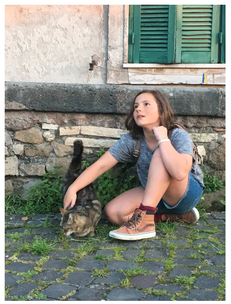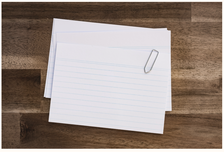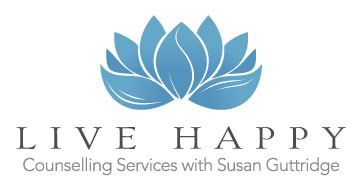|
This article was originally posted on November 16, 2010, to Happy Parents = Happy Kids (focusedonparenting.wordpress.com) by Susan Guttridge  Raising kids can bring out both the best and the worst in parents. After a challenging day, it might be easier to connect with all the things you’re doing wrong – I know I’ve had days like that! Perhaps it’s about having more energy, more patience, handling our temper, or not feeling quite so emotionally over-whelmed. Recognizing our limitations can often be easier than identifying how to create change, committing ourselves to a plan, and sticking with it. One of the greatest ways to successfully change a behaviour is to document it. We can do this through journaling, or by writing out a plan for ourselves. Committing our thoughts to paper somehow makes them more concrete. No longer are they fleeting words floating through our mind – on paper words take on a stronger meaning. They become real. Through writing we give order to our thoughts, which assists us in seeing a plan more clearly. So, to become accountable to yourself, every night write in your journal the ways in which you were successful in carrying out your desired behaviour change. Example: Becoming Accountable with Anger
Example: Becoming Accountable with Self-Esteem
Journaling in this way will make you accountable to yourself. It doesn’t feel very good to sit down to do this journaling exercise and have nothing to say – which is the success of the technique: You will want to implement the behaviour you planned so that you have something positive to write about in your journal!
0 Comments
This article was originally posted on November 1, 2010, to Happy Parents = Happy Kids (focusedonparenting.wordpress.com) by Susan Guttridge  This summer, my 6 year old daughter told me that I was a ‘no parent’. When I asked her what she meant, she told me that I say “no” all the time. Could this have been true? I was quite sure that I was a balanced parent – with an equal share of “yes’s” and “no’s”! However, because my daughter was quite adamant that I was in fact a ‘no parent’, I decided to check it out for myself. To keep track and deepen my self-awareness, I used an index card, with the word ‘no’ on one side and ‘yes’ on the other. What the process did for me was increase my self-awareness. Was my ‘no’ response simply a knee-jerk reaction, or was there a good reason for me to say ‘no’ to my daughter’s request? By the end of the day, I realized that I was in fact a very balanced parent, and the score card opened up a great dialog between my daughter and I about expectations. If you would like to increase self-awareness about a particular behaviour, try using the score card technique! It doesn’t have to just be used to increase awareness of ‘yes/no’ responses. If you are learning to better handle your anger, keep score on when you handle anger well (staying calm), and when you lose your cool. You can then use the score card to better understand what is going on for you when you are able to stay calm in the face of frustration – and hopefully learn to build on these moments! What helps you to stay present, to pause before responding? Type your ideas to the comments and let’s all learn from each other. Good luck! This article was originally posted on November 1, 2010, to Happy Parents = Happy Kids (focusedonparenting.wordpress.com) by Susan Guttridge The concept of mindfulness has become increasingly popular over the last few years, and involves the ability to notice what is going on for you at any given moment, without judgment. Mindfulness is a learned skill that one acquires through regular practice. For example, if you start to feel some of the physiological sensations of anxiety, stress, or anger, (such as rapid heart beat, shallow breathing, heat in face), it is important to stop what you are doing and ask yourself “what is going on for me right now?”. This will get you present and focusing on yourself in the moment. Answering this question will involve noticing what thoughts you are having that may be contributing to physiological sensations (of increasing frustration, anxiety, anger). It also helps to notice what is going on for you in your environment (the immediate situation). Daniel Siegel (2007), a researcher and author on the topic of mindfulness, describes mindfulness in the following way: “Mindfulness means paying attention, in the present moment, on purpose, without grasping onto judgments. Mindful awareness involves paying attention to whatever arises within the mind from moment to moment. Recent studies of mindful awareness reveal that it can result in improvements in a range of physiological, mental, and interpersonal domains of our lives. People who develop the capacity to pay attention in the present moment without grasping onto their inevitable judgments also develop a deeper sense of well-being.” All too often to tend to ignore what our bodies are telling us and just get on with daily life. We create habits for ourselves of going through each day in a state of ‘mindlessness’. However, in order to maximize our potential (and our potential happiness) in daily living, and live without fear and anxiety, we need to tune into ourselves with regular “check-ins”.
Try working through an example so that you are better equipped to apply this technique when needed. Think of a time recently when you noticed you were starting to feel anxious, fearful, angry, stressed, etc. What body sensations did you experience? What thoughts were going through your mind? For example, what were you telling yourself about the situation or about your ability to handle the situation? When you notice that you are feeling discomfort, it is important to acknowledge it. Notice what is going on for you and then do something about it. Perhaps you need to do something to calm down. Or perhaps you have been triggered and need to take a few moments away from the situation to regroup. Perhaps you need to reframe negative self-talk. When you are calm, your problem-solving skills are enhanced. Remembering to take deep, slow, regular breaths is an important part of staying calm and in control. If you tend to be triggered by certain behaviours in your children, practicing using mindfulness in your parenting. Remember, it is not the event that determines your reaction – it is your thought or interpretation of that event that determines your reaction. Without mindfulness, we risk reacting to situations without noticing our thoughts and physiological cues that cause us to react in the ways we do. Doing check-ins to increase mindfulness can enable you to take control of your actions and reactions at all different points in the cycle, and increase feelings of control, calmness, and competence. Reference: Siegel, D. (2007). The mindful brain: Reflection and attunement in the cultivation of well- being. New York, NY: W. W. Norton & Company, Inc. |
AuthorSusan Guttridge is a trauma-informed Master level Counsellor with the clinical designation of Canadian Certified Counsellor (CCPA). She has 20+ years experience providing individual and group therapy. Archives
January 2024
Categories
All
|


 RSS Feed
RSS Feed